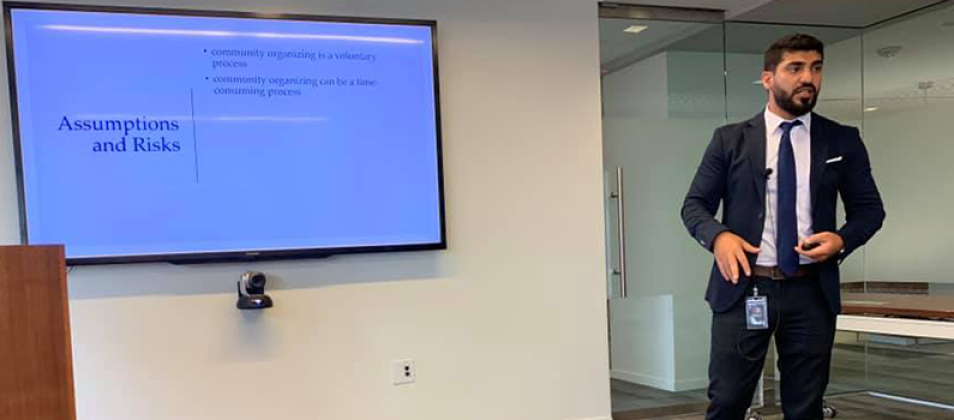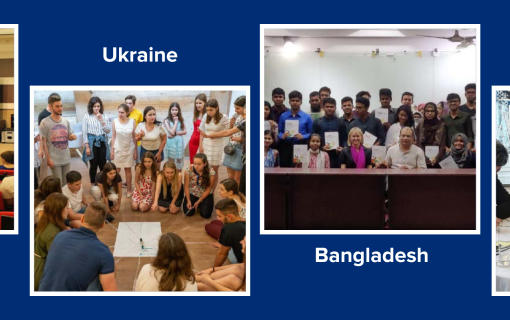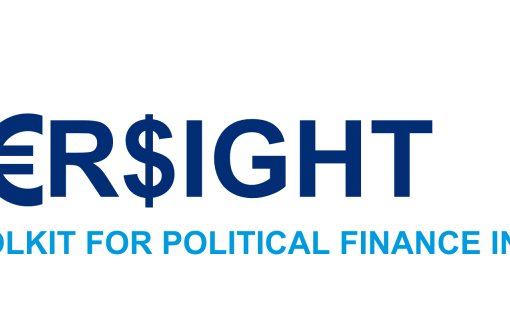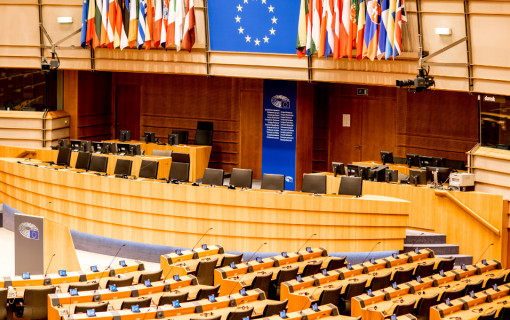
Q&A with IFES Research Intern Kamran Mamedovi on Ethnic Minorities in Georgia
Kamran Mamedovi, a young ethnic Azerbaijani from Georgia, recently obtained his master’s degree in conflict transformation from Eastern Mennonite University in Harrisonburg, Virginia. He also just completed a summer research internship with the Europe and Eurasia team at the International Foundation for Electoral Systems (IFES), where he assisted the team in designing an approach for its new project to promote civic and political awareness among youth in minority regions. Motivated by his personal experience, Mamedovi’s research explores the political participation of ethnic minorities in Georgia. In this Q&A, he speaks about his time at IFES and connects his research to the realities that ethnic minority populations face in Georgia.
Could you tell us about your research?
Nowadays, there are various barriers for ethnic minorities in political and social processes. Most of the time, ethnic minorities in Georgia are deprived of their basic human needs. For instance, they must walk several miles to get drinking water for their families. There are no roads or usable infrastructure in the minority villages. Most of these barriers and challenges exist because the voices of ethnic minorities are not heard or regarded by Georgia’s leaders, and they are excluded from the political processes in Georgia. With my research, I tried to look at various electoral systems around the globe to identify theories of change to empower ethnic minorities and give them a voice in the political processes. Furthermore, I analyzed the Georgian electoral and political systems from the eyes of ethnic minorities to elevate their experiences and perspectives.
Why did you choose to further research this topic at IFES?
IFES is a very influential and reputable international organization working on elections. During recent years, most of the electoral code reforms have been deliberated and adopted with IFES creating space to talk about the issues in a constructive manner. It is a privilege to work with an organization such as IFES that aspires to assist governments and populations as they transform their political and electoral systems for the best interests of the citizens. On the other hand, I belong to a specific ethnic minority group in Georgia. I have experienced many structural and institutional barriers in person throughout my life. I have seen situations where the needs and positions of certain groups did not matter because they were minorities. I believe that it is neither right nor acceptable. Working with IFES on the topics of empowerment, inclusion and diversity is a way for me to challenge the unjust and unacceptable situation in Georgia and around the globe.
"Working with IFES on the topics of empowerment, inclusion and diversity is a way for me to challenge the unjust and unacceptable situation in Georgia and around the globe."
How does your experience at IFES benefit your future career goals?
I think that there are three main benefits. First, the network and connections I built at and through IFES are priceless. During my research, I found that ethnic minorities and international organizations mostly do not have direct relations. So, the connections I built during this period are an excellent benefit for my community and myself. Second, I have been observing the organizational culture of IFES. I can see that the organization values, listens to and empowers its employees. It is not always the case in Georgia or my community. I can see that this approach helps the organization be more productive and successful. Finally, IFES gave me the skills and tools to analyze and study electoral systems. I have built knowledge of the electoral systems from the perspective of ethnic minorities that will help me advocate for the rights of minorities in Georgia.
How does being a young member of an ethnic minority community affect your and your peers’ participation in Georgian democratic processes?
As simple as it is, if you are an ethnic minority, you are perceived as less than equal. On every level of social interactions and relations, you are being judged or perceived based on your ethnicity. For instance, former President Mikheil Saakashvili was accused of being ethnic Armenian. As a response, Saakashvili claimed that he had taken a DNA test, and proved that he is 99 percent ethnic Georgian. The general understanding and narrative of “Georgianhood” is that if you are not ethnic Georgian, then you are a guest or the “internal other,” which is an infamous term that well-known Georgian scholar Ghia Nodia came up with to describe the role and position of ethnic minorities in Georgia.
Having said that, ethnic minority youth try to claim their voices at the local level. Despite having few successes, they are always looking to find new ways and new outlets to make their voices heard, especially over social media. However, without having strong international connections and direct relations with international organizations, the activities of ethnic minority youth are often overlooked by the rest of the population. Moreover, some stakeholders hinder and discourage ethnic minority youth from taking an active role in political and social processes.
What are some solutions and how can practitioners better promote the participation of young ethnic minorities?
I believe that the existing situation should be addressed at its roots. To be honest, when I came to IFES, my goal was to write a paper about quota systems for ethnic minorities that would support the idea of implementing ethnic quotas in Georgia. However, after familiarizing myself with the literature, I realized that top-down solutions do not work. Neither quotas nor simply refining the electoral and political system can increase the participation of young ethnic minorities. The situation requires a bottom-up approach in which ethnic minorities develop tools to build relations, trust and power within their communities. If we want ethnic minorities to have a voice and participate in the political processes, we should teach them how to organize. Organized ethnic minority youth can claim ownership over their neighborhoods, communities, cities, regions and finally, their country – Georgia.
"If we want ethnic minorities to have a voice and participate in the political processes, we should teach them how to organize."










